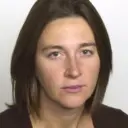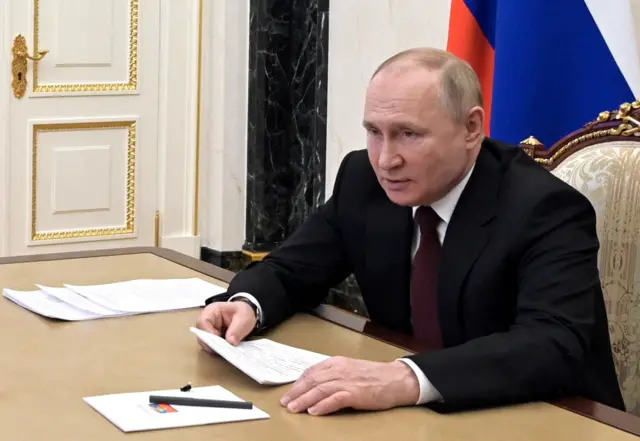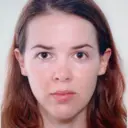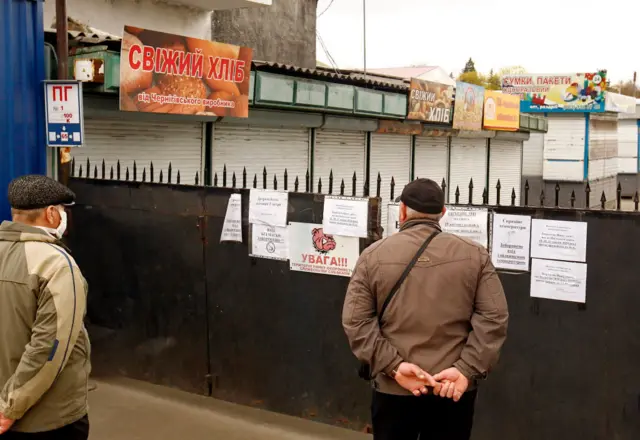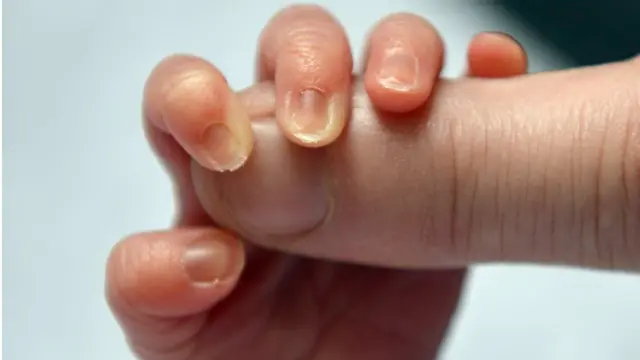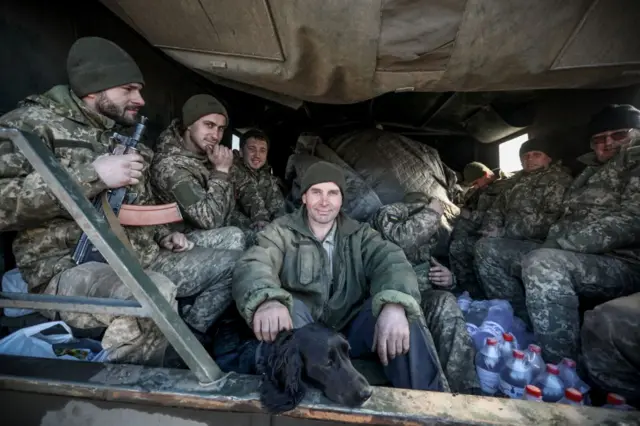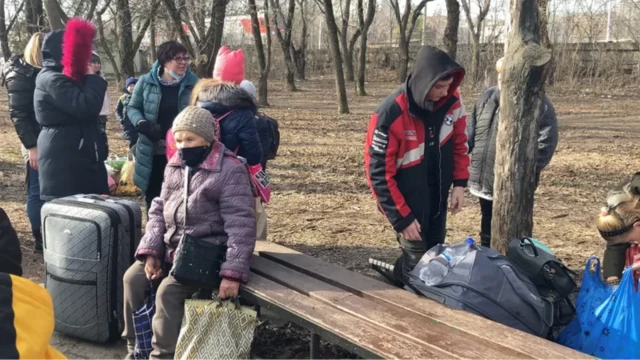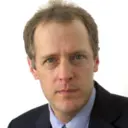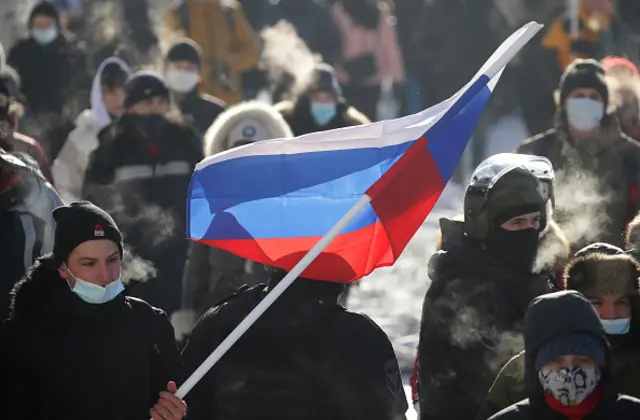Putin attacks the Ukrainian authoritiespublished at 19:13 GMT 21 February 2022
Putin has now moved on to criticising the Ukrainian authorities.
He called the events of 2014 – which saw protesters topple Ukraine’s pro-Russian president – a “coup”.
Putin says, without providing evidence, that Ukraine was being controlled from the “outside”.
